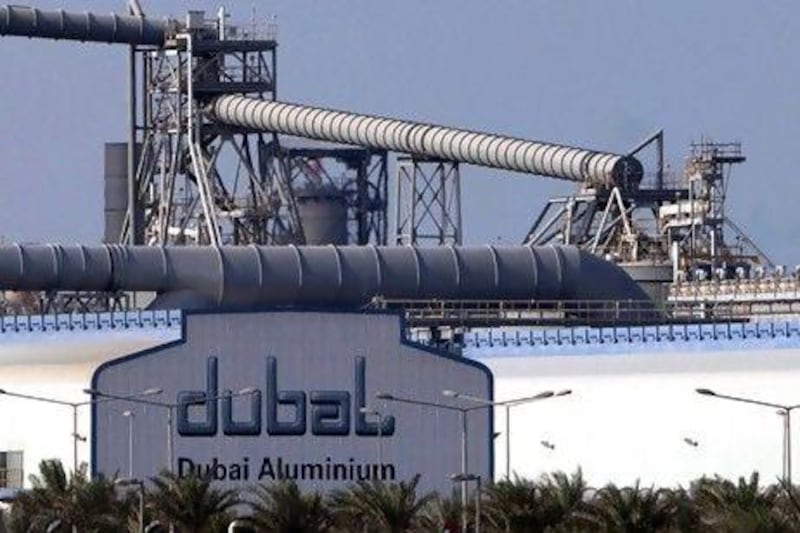Mubadala Development is in talks to buy a stake in Dubai Aluminium (Dubal), potentially creating one of the world's largest smelting groups.
The talks about Mubadala buying an undisclosed stake in Dubal were announced yesterday by Sheikh Hamdan bin Rashid, Deputy Ruler of Dubai, after an annual general meeting to discuss the smelter's financial results for last year. Sheikh Hamdan is also UAE Minister of Finance and chairman of the Dubal board.
Mubadala, a strategic investment company owned by the Abu Dhabi Government, and Dubal are already linked through their 50-50 joint ownership of Emirates Aluminium (Emal), a smelter at Al Taweelah, Abu Dhabi.
Asked about the talks with Dubal, Mubadala said the two companies "continuously explore opportunities to expand their Emal partnership locally, regionally and internationally. These discussions have always been aimed at improving the scale and standing of our national aluminium industry on the global stage."
Dubal's net profit more than doubled to Dh2.13 billion (US$580 million) last year as aluminium prices soared. Further growth is expected this year. Aluminium futures on the London Metal Exchange stood at $2,596 per tonne yesterday, up 20 per cent in the past six months. Demand has been driven by growing consumption in China and other emerging markets.
Emal is expected to post a profit for the first time this year as the amount of metal produced doubles to 742,000 tonnes. Dubal produces more than 1 million tonnes of aluminium annually.
"We are very bullish in terms of the market," said Abdulla Kalban, the president and chief executive of Dubal. "This year will be the first year of profits for Emal and the company will generate quite a lot of profits."
Questions had been raised about the company's future ownership after senior Dubai officials revealed plans to privatise some of the emirate's assets late last year. It was part of Dubai's plan to reduce its debts, estimated by the IMF at $110bn.
In December, the 32-year-old company was highlighted as a possible privatisation candidate by Mohammed al Shaibani, the director general of the Dubai Ruler's Court and the chief executive of the Investment Corporation of Dubai, a government entity that owns Dubal.
But a sale to Abu Dhabi appears to have been the preferred option. Mubadala is a driver of Abu Dhabi's long-term strategy of diversifying its economy by investing in non-hydrocarbon-based businesses, developing an extensive physical infrastructure and feeding the growth of industry. In addition to its investment in Emal, it has property and financial holdings, and investments in education and health care.
Aluminium production is extremely energy-intensive, and investors are increasingly choosing to locate new smelters close to abundant, cheap energy sources.
Emal started operations in December 2009 and produced 336,000 tonnes of aluminium during its first year, 100,000 tonnes more than planned, said Mr Kalban. It aims to supply 160 customers worldwide.
Since Dubal was launched in 1979, its production capacity has grown more than sevenfold to over 1 million tonnes per year.






